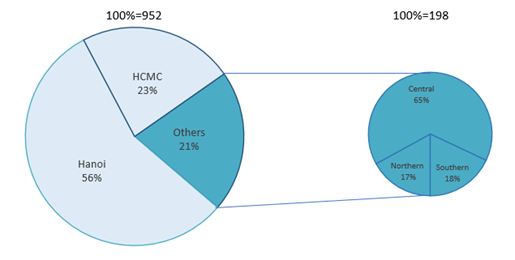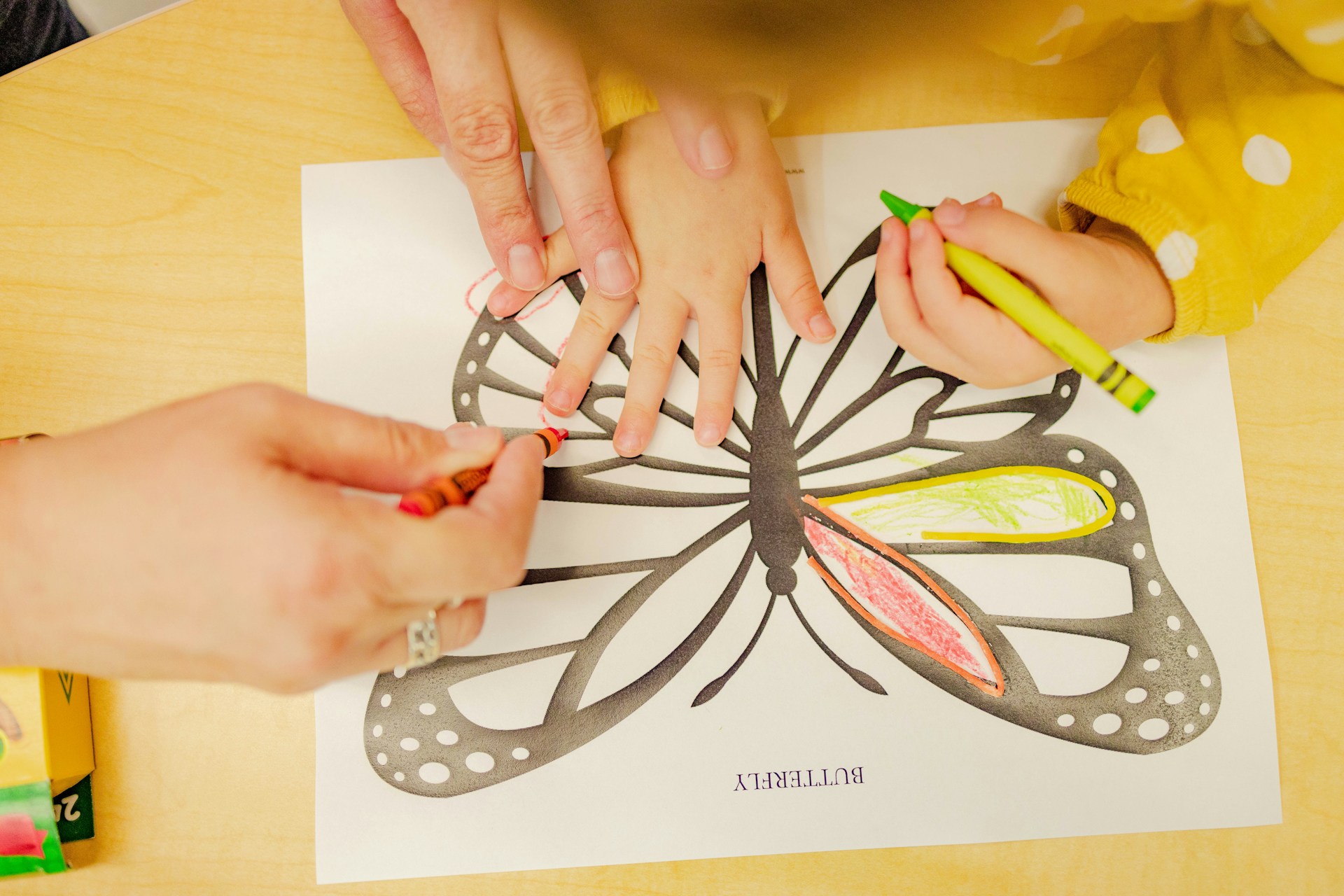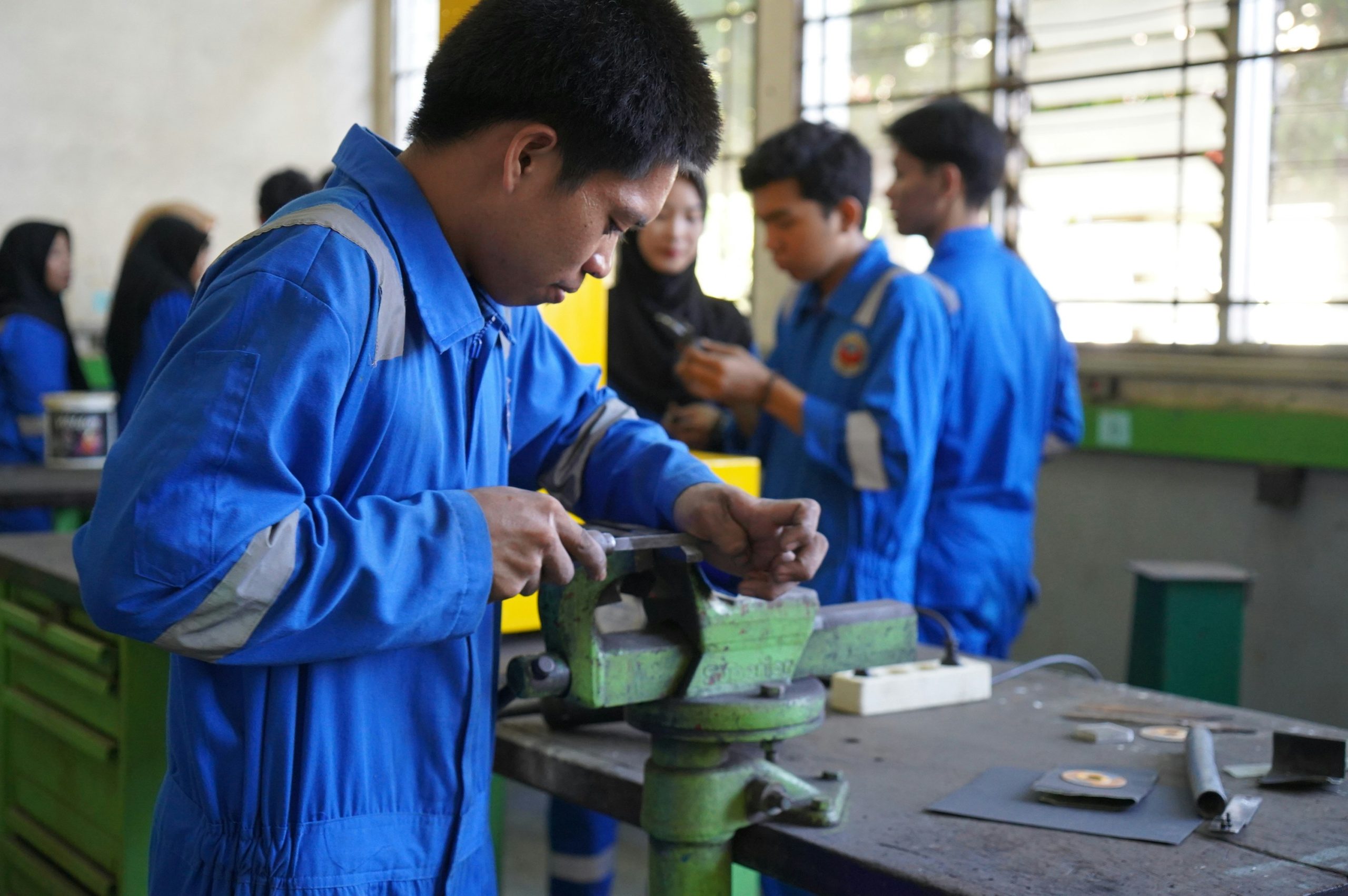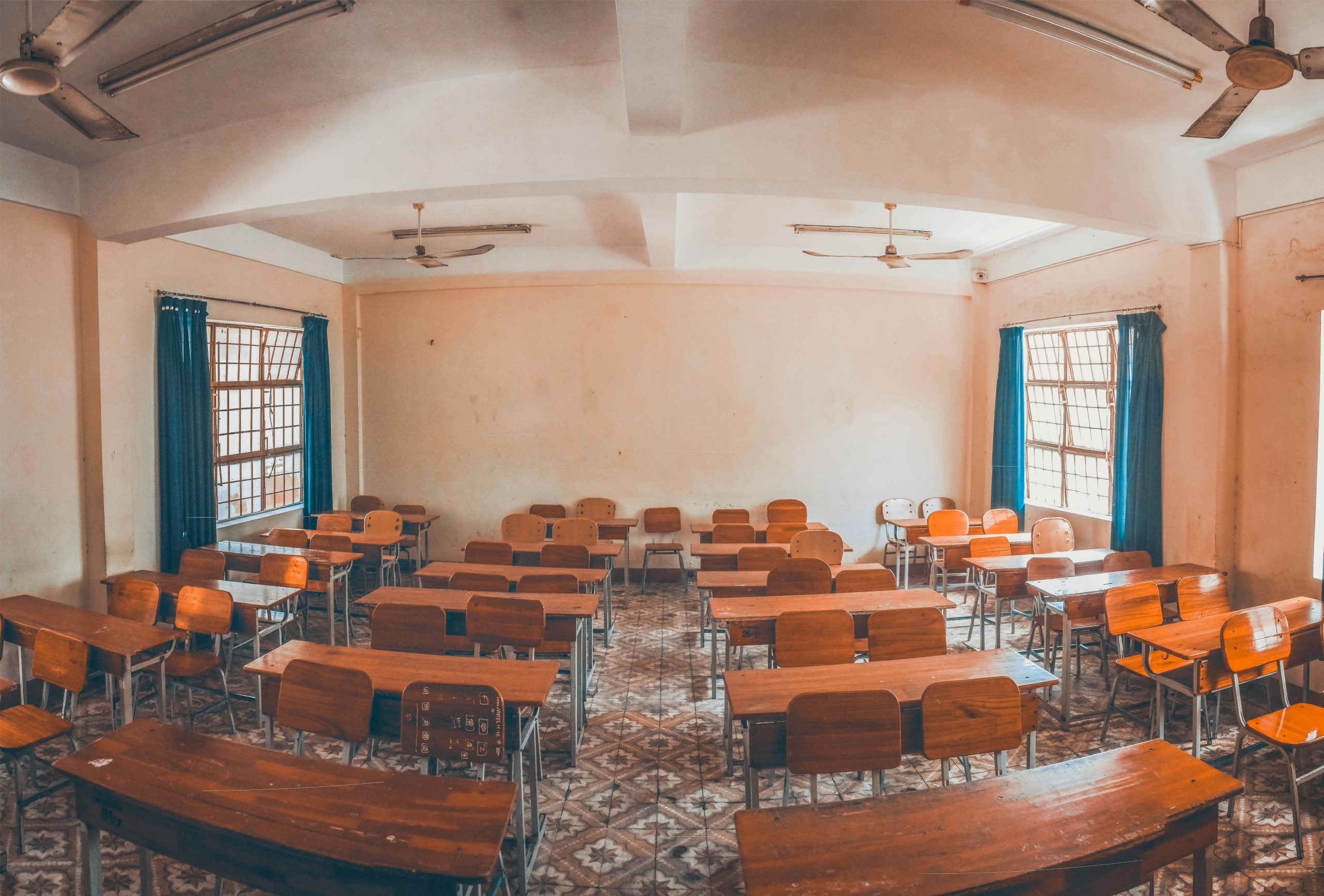
08/07/2025
Tin tức & Báo cáo mới nhất / Vietnam Briefing
Bình luận: Không có bình luận.
Trong bối cảnh Nhật Bản tiếp tục đối mặt với tình trạng thiếu hụt nghiêm trọng lao động trong lĩnh vực chăm sóc người cao tuổi, Việt Nam đã trở thành một trong những quốc gia được ưu tiên tuyển dụng thực tập sinh kỹ thuật. Việc lựa chọn các trường đại học và cao đẳng đối tác phù hợp để đào tạo và tuyển dụng là bước đầu tiên quan trọng. Công việc chăm sóc người cao tuổi có yêu cầu đặc biệt, không chỉ đòi hỏi sức bền thể chất, tính kỷ luật, khả năng thích nghi và sự đồng cảm mà còn cả trình độ ngôn ngữ và kỹ năng mềm. Do đó, việc lựa chọn các tổ chức đối tác không nên chỉ dựa vào danh tiếng mà phải cân nhắc kỹ lưỡng để đảm bảo tính phù hợp và hiệu quả lâu dài.
Với kinh nghiệm của B&Company trong lĩnh vực giáo dục và nghiên cứu thị trường lao động, cũng như triển khai các dự án hợp tác Nhật Bản - Việt Nam trên cả khu vực nhà nước và tư nhân, chúng tôi đề xuất ba tiêu chí cốt lõi sau để lựa chọn các cơ sở giáo dục phù hợp cho chương trình thực tập này.
1. Địa điểm: Mở rộng quan hệ đối tác với các tổ chức ngoài Hà Nội và Thành phố Hồ Chí Minh
Trong bối cảnh nhu cầu triển khai chương trình thực tập sinh trong lĩnh vực chăm sóc người cao tuổi ngày càng tăng, việc lựa chọn các cơ sở đào tạo tại địa phương ngoài các thành phố lớn là hướng đi chiến lược và tiết kiệm chi phí. Một số tỉnh có truyền thống xuất khẩu lao động có thể cân nhắc như:
– Miền Bắc: Thái Nguyên, Bắc Giang,..
– Miền Trung: Thanh Hóa, Nghệ An, Hà Tĩnh, Quảng Bình, Quảng Trị,..
– Miền Nam: Đồng Tháp, An Giang, Sóc Trăng,..
Những lý do chính như sau:
– Sự phù hợp của học sinh: Sinh viên từ các vùng kinh tế kém phát triển thường có xuất thân khiêm tốn. Họ có xu hướng chăm chỉ, kỷ luật và khả năng thích nghi cao. Những phẩm chất này phù hợp với các yêu cầu cụ thể của ngành chăm sóc người cao tuổi.
– Tuyển sinh ổn định và tối ưu chi phí hoạt động: Nhiều trường đại học địa phương duy trì ổn định tuyển sinh và giữ chân sinh viên, đảm bảo nguồn cung ứng thực tập sinh đáng tin cậy cho chương trình. Hơn nữa, chi phí hoạt động và tổ chức ở những khu vực này thường thấp hơn, giúp tối ưu hóa hiệu quả đầu tư.
– Chủ động hợp tác quốc tế: Các trường đại học địa phương, có ít cơ hội hợp tác quốc tế hơn so với các trường đại học thành thị, thường cởi mở hơn, linh hoạt hơn và cam kết hơn khi làm việc với các đối tác nước ngoài. Đây là một lợi thế đáng kể trong việc triển khai các chương trình dài hạn như sáng kiến cử thực tập sinh.
Theo MEXT, tính đến năm 2020, hầu hết các thỏa thuận hợp tác giữa các trường đại học Nhật Bản và Việt Nam tập trung ở Hà Nội (56%) và Thành phố Hồ Chí Minh (23%), trong khi các tỉnh khác chỉ chiếm 21%. Ngoài Hà Nội và Thành phố Hồ Chí Minh, các trường đại học ở miền Trung chiếm 65% trong số các thỏa thuận, phản ánh xu hướng hợp tác chủ yếu tập trung ở các khu vực đô thị lớn. Điều này cho thấy vẫn còn nhiều cơ hội để khai thác tiềm năng của các trường đại học địa phương, mặc dù có ít cơ hội hợp tác quốc tế hơn, nhưng thường thể hiện thiện chí hợp tác mạnh mẽ hơn.
Number of inter-university exchange agreements between Japanese and Vietnamese universities by region
Nguồn: Bộ Giáo dục, Văn hóa, Thể thao, Khoa học và Công nghệ (MEXT), “Kết quả khảo sát về các thỏa thuận trao đổi liên trường đại học với các trường đại học ở nước ngoài và các cơ sở ở nước ngoài” (Phiên bản sửa đổi tính đến ngày 30 tháng 4 năm 2020)
2. Ngành học: Tập trung vào định hướng thực tế, không chỉ là chuyên ngành
Làm việc tại các cơ sở chăm sóc người cao tuổi ở Nhật Bản không chỉ đòi hỏi kiến thức chuyên môn mà còn cần cả sự đồng cảm, giao tiếp, khả năng thích ứng và kỹ năng mềm. Do đó, việc lựa chọn các cơ sở đào tạo nên dựa trên phương pháp đào tạo tổng thể, không giới hạn ở một chuyên ngành cụ thể.
Mặc dù chương trình mở cho tất cả các chuyên ngành, nhưng nên ưu tiên các lĩnh vực liên quan đến dịch vụ con người, chẳng hạn như công tác xã hội, khách sạn, điều dưỡng cơ bản và phục hồi chức năng, nơi sinh viên đã có kinh nghiệm làm việc với các nhóm dễ bị tổn thương. Các tổ chức cung cấp đào tạo tiếng Nhật hoặc có hợp tác trước đó với các công ty Nhật Bản cũng sẽ có lợi thế cạnh tranh trong việc chuẩn bị cho sinh viên làm việc và hội nhập văn hóa tại Nhật Bản.
Các tiêu chí chính cần xem xét như sau:
– Có ít nhất 50% chương trình đào tạo tập trung vào đào tạo thực hành
– Chương trình thực tập tại các cơ sở dịch vụ hoặc tổ chức cộng đồng
– Chương trình giảng dạy bao gồm đạo đức nghề nghiệp, kỹ năng mềm, nghi thức văn hóa và ý thức kỷ luật
– Đã từng tham gia chương trình thực tập sinh kỹ thuật hoặc Tokutei Gino
– Mở cho tất cả các chuyên ngành, ưu tiên các ngành y tế, du lịch, khách sạn và dịch vụ ẩm thực
– Ưu tiên các trường có lớp học tiếng Nhật chính thức hoặc có liên kết với các trung tâm ngoại ngữ, có kinh nghiệm làm việc với đối tác Nhật Bản trong các chương trình lao động, giáo dục hoặc phái cử.
3. Năng lực thực hiện và định hướng quốc tế
Việc triển khai thành công các chương trình thực tập đòi hỏi sự phối hợp chặt chẽ giữa các tổ chức, doanh nghiệp, trung tâm đào tạo ngôn ngữ và các tổ chức chủ nhà Nhật Bản. Các tổ chức có sự lãnh đạo cởi mở, kinh nghiệm hợp tác quốc tế và các phòng ban hỗ trợ tích cực đảm bảo quá trình hợp tác nhanh hơn và hiệu quả hơn.
Các tiêu chí chính cần xem xét như sau:
– Có MOU hiện tại hoặc kinh nghiệm trao đổi sinh viên với Nhật Bản, Đài Loan hoặc Hàn Quốc
– Quan hệ quốc tế tích cực hoặc văn phòng dịch vụ nghề nghiệp hỗ trợ các cơ hội ở nước ngoài
– Kinh nghiệm tổ chức hội thảo nghề nghiệp hoặc chương trình đào tạo ngoại ngữ
– Sẵn sàng ký kết các thỏa thuận hợp tác dài hạn (MOU, MOC hoặc hợp đồng phái cử)
Hướng dẫn chính để làm việc với các tổ chức:
– Ưu tiên các tổ chức có đội ngũ lãnh đạo tận tụy và chuẩn bị lộ trình hợp tác dài hạn: Tương tác trực tiếp với các nhà lãnh đạo trường học để trình bày các lợi ích và tính bền vững lâu dài của chương trình. Tránh tuyển dụng ngắn hạn, tập trung vào số lượng. Minh bạch về các lợi ích của sinh viên (thu nhập, chứng chỉ, cơ hội quay trở lại) và cách chương trình mang lại giá trị cho tổ chức.
– Xây dựng kế hoạch thực hiện rõ ràng, chi tiết và cụ thể: Một số cơ sở trước đây đã không thúc đẩy được quan hệ đối tác do các giai đoạn lập kế hoạch mơ hồ hoặc kéo dài. Trong khi đó, các cơ sở (đặc biệt là các trường cao đẳng và đại học địa phương) rất cần các kế hoạch hành động chi tiết theo từng học kỳ để sắp xếp hiệu quả các chương trình đào tạo, tổ chức lịch thực tập và cung cấp tư vấn cho sinh viên.
– Thu hút học sinh trực tiếp thông qua giao tiếp hiệu quả: Ngoài việc làm việc với lãnh đạo nhà trường, tổ chức các hoạt động quan hệ công chúng, hội thảo nghề nghiệp và các buổi tư vấn cho học sinh để thúc đẩy sự quan tâm và chủ động của học sinh.
– Hỗ trợ đào tạo tiếng Nhật tại chỗ: Nếu trường thiếu năng lực tiếng Nhật, hãy cung cấp các lớp học tiếng Nhật miễn phí hoặc kết nối trường với các trung tâm đào tạo tiếng Nhật phù hợp để làm nền tảng xây dựng nguồn nhân tài.
– Tránh tuyển dụng vội vã hoặc gây áp lực: Bắt đầu với nhóm thí điểm quy mô nhỏ để đánh giá và điều chỉnh trước khi mở rộng quy mô.
Kết luận
Kinh nghiệm cho thấy nhiều trường đại học Việt Nam (đặc biệt là các trường ngoài công lập hoặc địa phương) vẫn thiếu kinh nghiệm làm việc với các đối tác quốc tế. Điều này thường dẫn đến những thách thức trong giao tiếp, lập kế hoạch và thực hiện. Hơn nữa, giáo dục thành công và hợp tác lao động không chỉ dừng lại ở việc ký kết thỏa thuận; chúng đòi hỏi sự cam kết lâu dài và xây dựng mối quan hệ.
Do đó, một tổ chức trung gian để “giữ ấm” mối quan hệ với các trường đại học là điều cần thiết. Vai trò này bao gồm giao tiếp nội bộ và giao tiếp với sinh viên, phối hợp giữa các tổ chức và doanh nghiệp, tổ chức các buổi hướng dẫn nghề nghiệp và giám sát chặt chẽ việc thực hiện và phản hồi.
———–
B&Company, với kinh nghiệm trong nghiên cứu giáo dục, tư vấn thị trường và kết nối kinh doanh Nhật Bản - Việt Nam, có thể đóng vai trò là đối tác hỗ trợ toàn diện, giúp xác định các tổ chức phù hợp, thiết kế lộ trình triển khai thực tế, điều phối truyền thông và quan trọng nhất là đảm bảo tính bền vững của quan hệ đối tác giữa tất cả các bên liên quan.
* Lưu ý: Nếu bạn muốn trích dẫn thông tin trong bài viết này, vui lòng ghi rõ nguồn và kèm theo link bài viết để đảm bảo tôn trọng bản quyền.
| B&Company, Inc.
Công ty nghiên cứu thị trường của Nhật Bản đầu tiên tại Việt Nam từ năm 2008. Chúng tôi cung cấp đa dạng những dịch vụ bao gồm báo cáo ngành, phỏng vấn ngành, khảo sát người tiêu dùng, kết nối kinh doanh. Ngoài ra, chúng tôi đã phát triển cơ sở dữ liệu của hơn 900,000 công ty tại Việt Nam, có thể được sử dụng để tìm kiếm đối tác kinh doanh và phân tích thị trường. Xin vui lòng liên hệ với chúng tôi nếu bạn có bất kỳ thắc mắc hay nhu cầu nào. info@b-company.jp + (84) 28 3910 3913 |






















